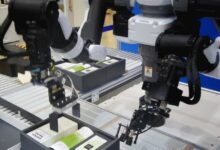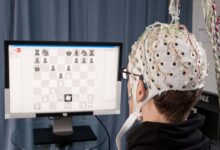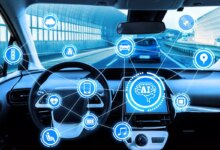AI’s Next Frontier Shapes Future’s Technology
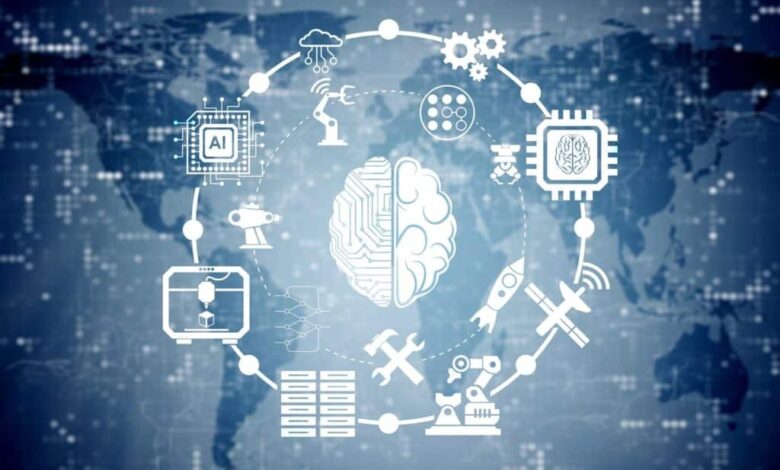
The landscape of technology is constantly evolving, with artificial intelligence (AI) at the forefront of this transformation. From simple automation to complex decision-making, AI is no longer a futuristic concept but a present-day reality. This deep dive explores the current state of AI and its next frontiers, including its applications, challenges, and the ethical considerations that will shape its future.
The Essence of the AI Revolution
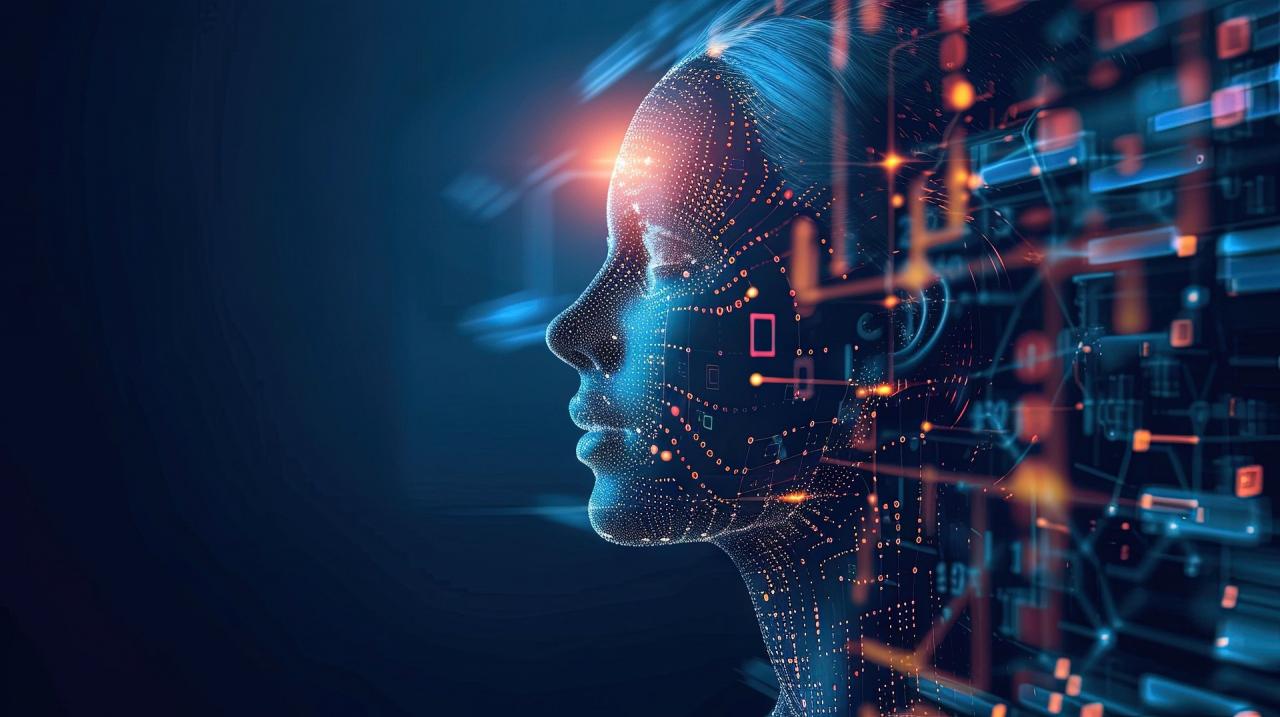
AI’s journey began with rule-based systems and has since blossomed into sophisticated models capable of learning from vast datasets. The core of this revolution lies in machine learning (ML), a subfield of AI that enables systems to learn and improve without explicit programming. This capability allows AI to tackle problems that were once considered insurmountable, from diagnosing diseases with incredible accuracy to personalizing user experiences on a global scale.
The current AI landscape is dominated by several key areas:
- Generative AI: This branch focuses on creating new content, such as text, images, music, and videos. Models like GPT-4 and Midjourney are revolutionizing creative industries by providing powerful tools for artists, writers, and designers.
- Computer Vision: AI systems can now “see” and interpret visual information. This is used in everything from self-driving cars that recognize pedestrians and traffic signs to medical imaging analysis that helps doctors detect tumors.
- Natural Language Processing (NLP): NLP enables computers to understand, interpret, and generate human language. It powers virtual assistants like Siri and Alexa, translation services, and sentiment analysis tools.
- Reinforcement Learning (RL): This type of AI learns by trial and error, a process similar to how humans learn. It’s particularly effective in complex environments like robotics and game playing, where the AI receives rewards for desired actions.
The synergy between these fields is creating powerful, multifaceted AI systems that are more capable and adaptable than ever before.
The Next Frontiers of AI
As AI becomes more integrated into our daily lives, researchers and innovators are pushing the boundaries to explore new horizons. These next frontiers hold the potential to redefine industries and solve some of humanity’s most pressing challenges.
A. Edge AI
Currently, many AI models operate on the cloud, sending data to remote servers for processing. Edge AI shifts this paradigm by processing data directly on the device where it’s collected. This has several significant advantages:
- Reduced Latency: Decisions can be made in real-time without the delay of transmitting data to a server and back. This is crucial for applications like autonomous vehicles and industrial automation.
- Enhanced Privacy: Sensitive data, such as personal health information, doesn’t need to leave the device. This provides a new level of security and privacy for users.
- Lower Bandwidth Consumption: By processing data locally, Edge AI reduces the strain on network bandwidth, making it more efficient and reliable in areas with poor connectivity.
- Improved Resilience: Devices can continue to function even if the connection to the cloud is lost. This is vital for critical systems that must operate continuously.
The proliferation of Internet of Things (IoT) devices, from smart home appliances to wearable tech, is driving the demand for Edge AI. This shift will make AI ubiquitous and more responsive to our immediate needs.
B. Artificial General Intelligence (AGI)
While current AI is highly specialized and excels at specific tasks, Artificial General Intelligence (AGI) is the ultimate goal. AGI would possess the ability to understand, learn, and apply knowledge across a wide range of tasks, much like a human being. The pursuit of AGI involves:
- Developing a “Common Sense” Model: Current AI lacks the intuitive understanding of the world that humans possess. AGI would require a model that can reason about a wide variety of situations and contexts.
- Creating a Unified Learning Framework: Instead of separate models for different tasks, AGI would use a single, integrated system that can apply knowledge from one domain to another.
- Incorporating Emotional and Social Intelligence: To truly be “general,” AGI would need to understand and respond to human emotions and social cues, a complex and challenging task.
The path to AGI is long and filled with significant technical hurdles. However, even incremental progress in this area could lead to groundbreaking innovations.
C. AI for Scientific Discovery
AI is no longer just a tool for business; it’s becoming a partner in scientific research. From accelerating drug discovery to modeling climate change, AI is helping scientists make breakthroughs at an unprecedented pace.
- Drug and Material Discovery: AI can analyze vast chemical databases to predict how molecules will interact. This slashes the time and cost of developing new drugs and materials.
- Climate Modeling: AI models can process complex environmental data to predict climate patterns, helping scientists understand the impact of human activity and develop mitigation strategies.
- Astronomy and Astrophysics: AI is used to sift through massive amounts of astronomical data to identify new galaxies, exoplanets, and other celestial objects, accelerating our exploration of the cosmos.
- Personalized Medicine: AI can analyze a patient’s genetic data and medical history to create personalized treatment plans, moving healthcare from a one-size-fits-all approach to a tailored and effective one.
The ability of AI to find patterns in vast and complex datasets makes it an indispensable tool for tackling the biggest scientific questions of our time.
Ethical Considerations and Societal Impact
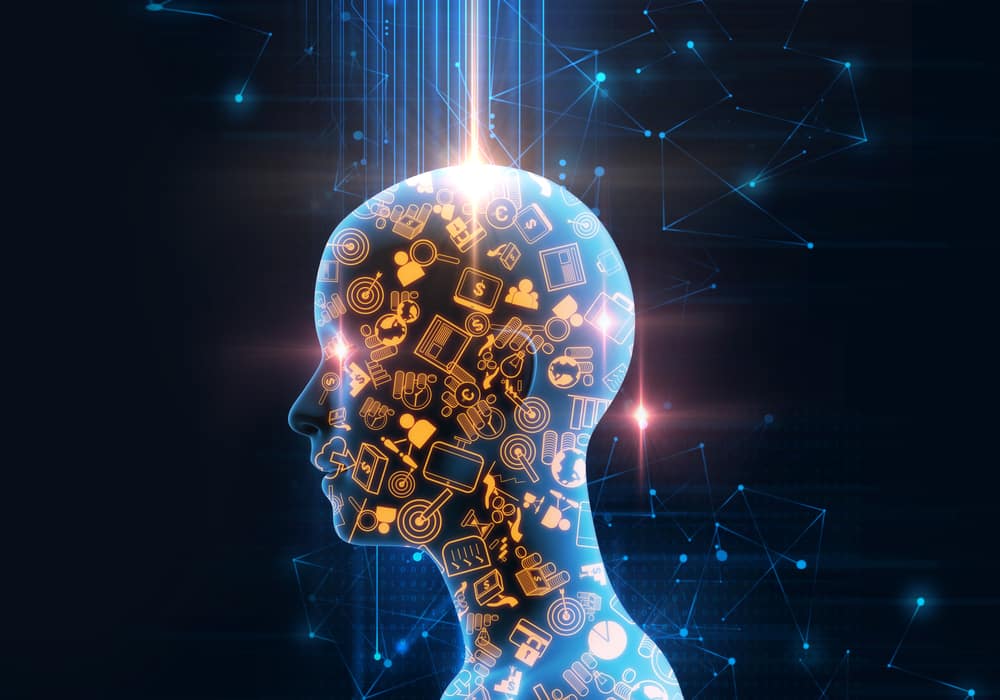
The rapid advancement of AI brings with it a host of ethical and societal questions that need to be addressed proactively. As AI becomes more powerful, its impact on our lives, work, and society as a whole will be profound.
A. Job Displacement and Reskilling
Automation driven by AI is already impacting various sectors, from manufacturing to customer service. While AI may create new jobs, it will undoubtedly displace others. It is essential to:
- Invest in Education and Reskilling: Governments and companies must provide training programs to equip workers with the skills needed for the jobs of the future, such as data analysis, AI development, and creative problem-solving.
- Foster a “Human-in-the-Loop” Approach: Instead of replacing human workers, AI can be used as a tool to augment their abilities, allowing them to focus on more creative and strategic tasks.
- Address the “Skills Gap”: There is a growing demand for AI specialists, and the supply of qualified professionals is struggling to keep up. This needs to be addressed through educational reform and industry partnerships.
B. Bias and Fairnes
AI models are trained on data, and if that data contains biases, the AI will learn and perpetuate those biases. This can lead to discriminatory outcomes in areas like hiring, criminal justice, and loan applications.
- Audit Data for Bias: It is crucial to carefully vet the datasets used to train AI models and ensure they are diverse and representative of the population.
- Develop Fair AI Algorithms: Researchers are working on algorithms that can detect and mitigate bias, ensuring that AI systems make fair and equitable decisions.
- Establish Transparent and Accountable Systems: The decision-making process of AI should be transparent, allowing developers and users to understand how and why a particular outcome was reached.
C. Privacy and Surveillance
The collection of vast amounts of data to train and operate AI systems raises serious privacy concerns. This data can be used for targeted advertising, but also for more intrusive surveillance.
- Enact Strong Data Protection Laws: Governments must implement and enforce strict regulations to protect user data and prevent its misuse.
- Promote Privacy-Preserving AI: Techniques like federated learning allow AI models to be trained on decentralized data without ever having to access the raw information, ensuring user privacy.
- Empower Users with Data Control: Users should have the right to know what data is being collected about them and have control over how it is used.
A Collaborative Future
The future of AI is not just about technology; it’s about people. The next phase of the AI revolution will require collaboration between governments, academia, and the private sector to ensure that AI is developed responsibly and serves the greater good.
- International Cooperation: Since AI is a global phenomenon, international standards and agreements are needed to govern its development and use, particularly in sensitive areas like autonomous weapons.
- Interdisciplinary Research: The most significant breakthroughs will likely come from the intersection of different fields. Combining AI with biology, psychology, and social sciences could lead to new ways of solving complex problems.
- Public Engagement: A robust public dialogue about the opportunities and risks of AI is essential. Educating the public about AI and involving them in the decision-making process will build trust and ensure that AI is a force for positive change.
The next frontier of AI isn’t a single destination but a continuous journey of innovation, discovery, and ethical deliberation. As we push the boundaries of what is possible, we must remember that the ultimate goal is to create a future where AI enhances human potential and makes our world a better, more equitable place for all.
Conclusion
The journey of artificial intelligence from a nascent concept to a transformative force in human history has been nothing short of extraordinary. The current era, marked by the sophistication of generative AI, computer vision, and natural language processing, has already reshaped industries and daily life. However, this is merely the prologue to a much grander story. The next frontiers, including the widespread adoption of Edge AI, the ambitious pursuit of Artificial General Intelligence, and the integration of AI into scientific discovery, promise to unlock capabilities that were once confined to the realm of science fiction. Edge AI, for instance, will usher in a new era of real-time, privacy-conscious applications by processing data locally, making autonomous vehicles and smart devices smarter and safer. Meanwhile, the quest for AGI represents humanity’s ultimate ambition to create a system that can learn and reason across disciplines, potentially offering solutions to problems that have long eluded us, from curing diseases to understanding the universe. Furthermore, AI’s role as a partner in scientific research is already accelerating breakthroughs, demonstrating its potential to be a powerful catalyst for human progress.
Yet, as we stand on the precipice of this new era, we must confront the profound ethical and societal challenges that accompany it. The specter of job displacement looms large, necessitating a proactive approach to reskilling and education to ensure that the workforce is prepared for the AI-driven economy. Bias within AI systems, a reflection of the data they are trained on, demands our vigilant attention to ensure fairness and equity in critical areas like hiring and justice. The paramount issue of data privacy requires a robust framework of regulations and technological solutions like federated learning to protect individual rights. The future is not about AI replacing humanity, but about a symbiotic relationship where AI augments our capabilities, allowing us to focus on creativity, strategy, and empathy. The development of AI is no longer just a technical exercise; it is a moral and social responsibility. The path forward is one of collaboration, where governments, academics, and industries work together to establish ethical guidelines and foster a public dialogue that shapes a future where AI is a force for good. Ultimately, the next frontier of AI is not merely about pushing technological boundaries; it is about building a future that is more intelligent, just, and humane for everyone.

